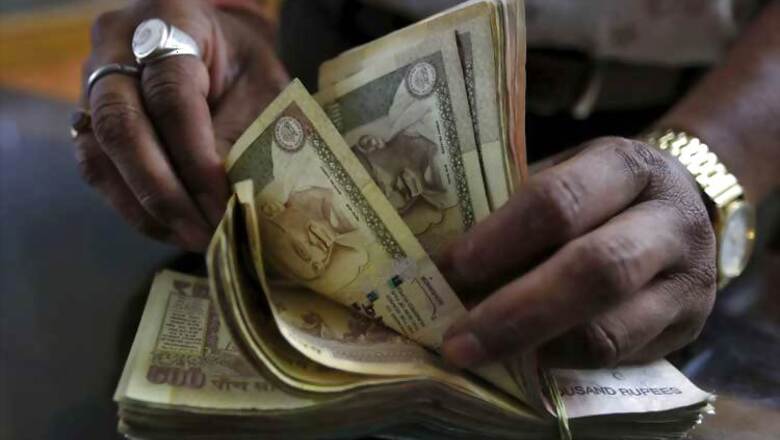
views
Berne: Two Indian women figure among scores of foreign nationals with Swiss bank accounts, whose names have been made public by Switzerland in its official gazette for being probed in their respective countries.
Making public these names, the Swiss Federal Tax Administration (FTA) has asked the two Indians to file an appeal within 30 days before the Federal Administrative Court if they do not want their details to be shared with the Indian authorities under their 'mutual assistance' treaty on tax matters.
However, no further details, other than their dates of birth, were made public for the two "Indian nationals" -- Sneh Lata Sawhney and Sangita Sawhney.
Similar is the case for other foreign nationals including the British, Spanish and Russians. However, in case of American and Israeli citizens, their full names have been withheld and they have been identified by their initials and dates of birth.
At least 40 such 'final notices' have been published in the Swiss Federal Gazette so far this month, while more such names are expected to be published going forward.
The alleged stashing of wealth by Indians in Swiss banks has been a matter of great debate in India.
The Indian government has been pushing the Swiss authorities for a long time to share information on the suspected tax evaders, while Switzerland has shared some details in cases where India has been able to provide some independent evidence of suspected tax evasion by Indian clients of Swiss banks.
While there was no immediate reply to queries mailed to the FTA spokesperson in this regard, these names are being published in the Swiss Federal Gazette in the backdrop of the Swiss government being flooded with requests on suspected black money hoarders in Swiss banks from various countries including India.
The notices for the two 'Indian nationals' and many others are dated May 12, while other such notices are dated May 19 and May 5.
As per these notices, the concerned persons can file an appeal before the Federal Administrative Court within 30 days, while providing the reasons and evidence in their support.
Through these gazette notices, the Swiss FTA is also looking to give the concerned persons an opportunity to resort to legal remedies. These are the persons about whom foreign governments are requesting information.
As per a report in the 'Sonntagszeitung' weekly, the Swiss authorities have been "inundated with requests for assistance" and the nations that wanted to know details about their suspected tax-dodging citizens included "France, Germany, Russia, India and half a dozen other countries".
"Now, the Authority will publish the names of those affected in the Federal Gazette, which is available to everyone on the internet," it said, while adding that those being named may include "well-known personalities".
As per the report, banks do not have much interest in contacting such customers as many no more hold the accounts. It further added that questions have been raised about requests made by India and Germany being based on stolen data.
The report, however, quoted FTA's Alexandre Dumas as saying, "We are never sure if they are stolen data. However, there is the principle of faith".
Committing full support to India's fight against the black money menace, Switzerland last week had said its Parliament would soon consider changes in laws to look into the possibility of sharing information in cases being probed on the basis of stolen data of Swiss bank accounts.
Switzerland's Economic Affairs Minister Johann Schneider Ammann during his India visit on May 15 said that the Swiss government was sensitive to the fact that the issue of black money was very important for India and needed to be resolved.
"Switzerland has decided to follow international standards, including those framed by OECD, in sharing information and providing assistance to foreign countries probing such cases, but we have to ask our Parliament to make changes in our laws," he said.
Indian Parliament has recently passed a new black money law under which those found to be stashing illicit funds in foreign locations, including Swiss banks, would face strict penal action, including up to ten years in jail and a penalty of 90 per cent of funds in addition to 30 per cent tax levy.
However, a one-time 'compliance window' will be provided before the law comes into force and this would let the persons with foreign assets to come clean by payment of 30 per cent tax and 30 per cent penalty.
















Comments
0 comment